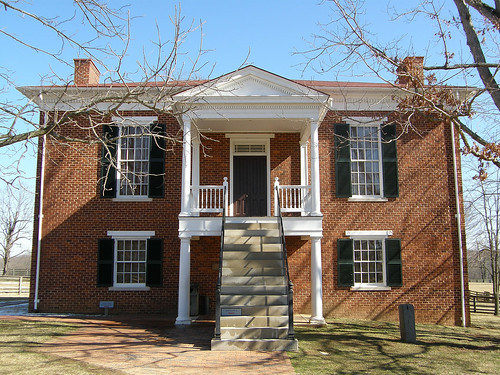Chapter 20: Fire in the Rear
"The fire in the rear" was Lincoln's fear of the northwest Democrats. Vallandigham became leader of the Peace Democrats in 1863 and wanted to restore the Union. Many Peace Democrats believed the Republicans caused the war and believed he could do better. The suspension of habeas corpus, the violation of speech and freedom, and the debt and taxes that the Republicans were imposing were only ruining the Union even more. That became their platform for the next two years.
In Butternut regions of the Midwest, due to economic issues, many southerners believed the same thing and began to support Peace Democrats. For a while, they were commanding the support of a large minority of the party. This Butternut identity with the south and the hatred of the northeast led to western Democrats talking of a "Northwest Confederacy" that would change the Union for the better when it hurt the northeast.
The National Banking Act, passed in 1863, also alienated western Democrats. This was passed because Secretary of Treasury Chase wanted to flood the market with war bonds.
Then, Vallandigham was arrested for disloyalty; his supporters attacked Republicans, but a military commission convicted him for expressing sympathy for the enemy and weakening the power of the government. Lincoln banished him, but in exile, he was nominated by the Ohio Democrats.
 The Enrollment Act of 1863 was implemented to stimulate volunteering by the threat of a draft. (This was actually mentioned in a previous chapter). Democrats began using this in their platform as well as a Republican sin. Still, it was a corrupt system since the rich could get out of the draft. People started believing, however, that the bounty given for "volunteering" was worse than just being drafted. The draft also forced men from ages 35 to 45 into the war and poor families starved. The exemption of one white man on every plantation with twenty or more slaves also angered Northerners.
The Enrollment Act of 1863 was implemented to stimulate volunteering by the threat of a draft. (This was actually mentioned in a previous chapter). Democrats began using this in their platform as well as a Republican sin. Still, it was a corrupt system since the rich could get out of the draft. People started believing, however, that the bounty given for "volunteering" was worse than just being drafted. The draft also forced men from ages 35 to 45 into the war and poor families starved. The exemption of one white man on every plantation with twenty or more slaves also angered Northerners.
Lincoln went through more generals, like Benjamin Butler, whose martial law reduced crime. But his notoriety soon led to him being replaced by Nathaniel P. Banks. Banks tried to ban trade with the enemy and tried to use peace to work with the natives but that didn't work. The North needed cotton, however, and still used it. Lincoln maintained that cotton was necessary for export and for its own industries, and thus couldn't ban trade. But, Banks believed that cotton was the corrupter of the Civil War.
Key Terms:
- Enrollment Act of 1863: every able-bodied white male citizen aged 20 to 45 could be drafted, but could get out of it through substitution or paying a fee.
- Peace Democrats: division of Democrats led by Vallandigham; didn't support the war and hoped to reunite the states through negotiation and peace.
- National Banking Act: (1863) established a system of national charters for banks; encouraged development of a national currency; raised money for the government by forcing banks to buy war bonds; issuing of Greenbacks.
- Benjamin Butler: Union general who gave slaves freedom in conquered areas before Emancipation; a way to scare Confederates into believing their property could be taken away and dropping morale.
Questions:
- In what ways did the National Banking Act affect individuals? All the book talked about was it coercing banks into buying charters, but nothing about the people.
- Why was the Republican "reign" for sixteen years so long when people began opposing their acts and laws?
Citations:
- McPherson,
James M. "20: Fire in the Rear." In Battle Cry
of Freedom, 568-625. Oxford: Oxford University Press, 1988.
- Accessed
March 11, 2015. http://upload.wikimedia.org/wikipedia/commons/2/2f/New_York_enrollment_poster_june_23_1863.jpg.
- Accessed March 11, 2015. http://www.let.rug.nl/usa/images/national.jpg.
